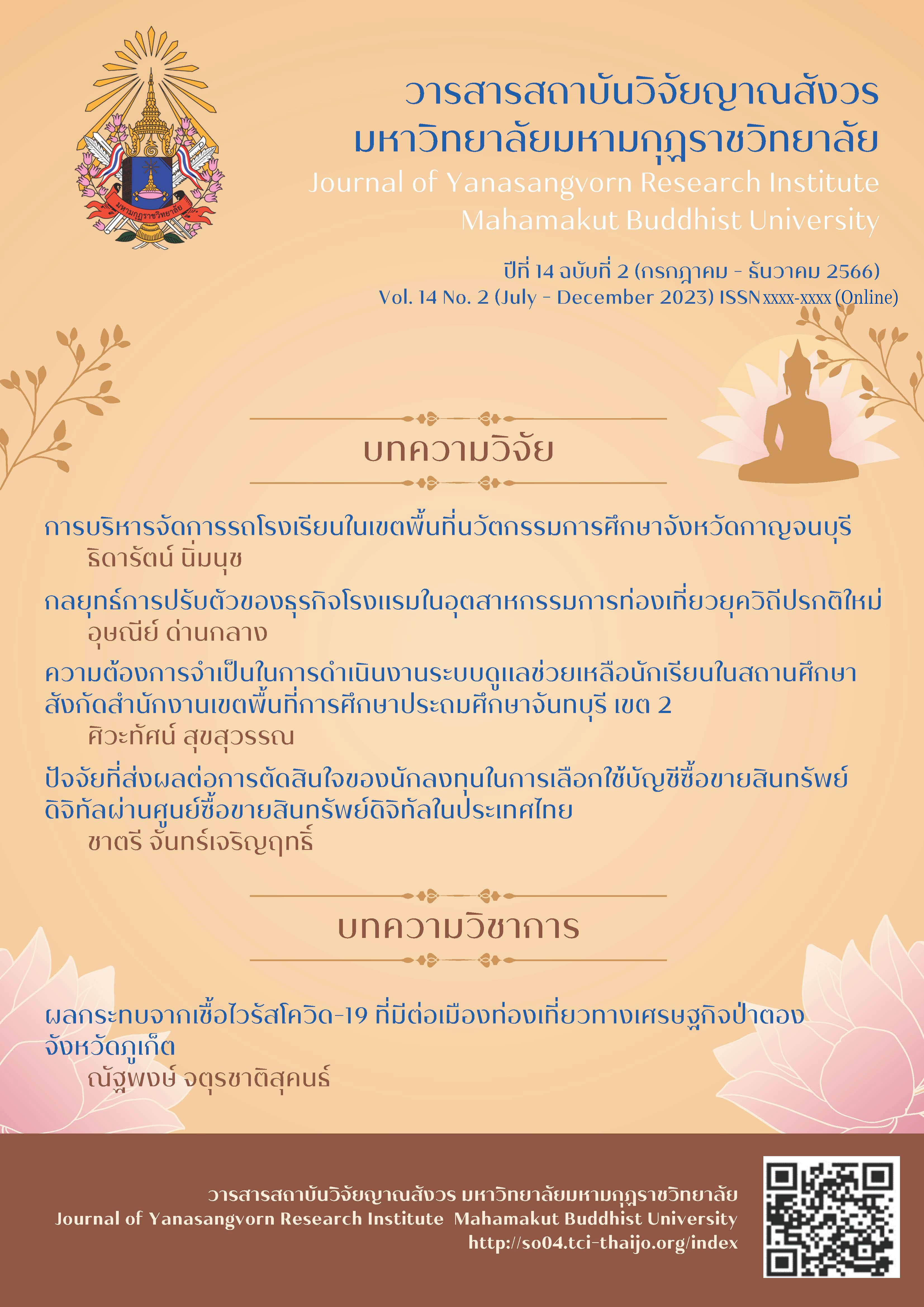การเกิดกระบวนการเรียนรู้เพื่อการเปลี่ยนแปลงของผู้เข้ารับการอบรม หลักสูตรการพยาบาลเฉพาะทาง สาขาเวชปฏิบัติทั่วไป(การรักษาโรคเบื้องต้น) วิทยาลัยพยาบาลพระจอมเกล้า จังหวัดเพชรบุรี
Main Article Content
บทคัดย่อ
การวิจัยในครั้งนี้เป็นการวิจัยเชิงคุณภาพ โดยมีวัตถุประสงค์เพื่ออธิบายการเกิดการเรียนรู้เพื่อการเปลี่ยนแปลงของผู้เข้ารับการอบรมหลักสูตรการพยาบาลเฉพาะทาง สาขาเวชปฏิบัติทั่วไป (การรักษาโรคเบื้องต้น) กลุ่มตัวอย่างคือผู้เข้ารับการอบรม รุ่นที่ 18 จำนวน 52 คน เครื่องมือที่ใช้ในการวิจัย คือ บทเรียนการประยุกต์ใช้กระบวนการเรียนรู้เพื่อการเปลี่ยนแปลง 10 ขั้นตอน แบบบันทึกการใช้กระบวนการเรียนรู้เพื่อการเปลี่ยนแปลง แนวคำถามสำหรับการสนทนากลุ่มและการสัมภาษณ์เชิงลึก เก็บรวบรวมข้อมูลระหว่างเดือนมีนาคมถึงเมษายน พ.ศ. 2560 โดยการสนทนากลุ่ม การสัมภาษณ์เชิงลึก การสังเกตอย่างมีส่วนร่วม และการทบทวนเอกสาร ผลการวิจัยพบว่า ผู้เข้ารับการอบรมเกิด TL ที่แตกต่างกันใน 3 ลักษณะ คือ เกิด TL เป็นขั้นตอนและพัฒนาต่อเนื่องตลอดการเรียนในหลักสูตร เกิดในช่วงท้ายของการเรียน และ ไม่เกิด TL เลย ข้อเสนอแนะจากผลการวิจัย คือ ส่งเสริมการบูรณาการ TL ในหลักสูตรการอบรมเฉพาะทางพยาบาลเวชปฏิบัติ และทำวิจัยติดตามประเมินผล
Article Details

อนุญาตภายใต้เงื่อนไข Creative Commons Attribution-NonCommercial-NoDerivatives 4.0 International License.
เอกสารอ้างอิง
กรมอนามัย. (2559). ยุทธศาสตร์เชิงรุก ของงานสาธารณสุขแนวใหม่. สืบค้น 25 มกราคม 2560 จาก http://advisor.anamai.moph.go.th/ewt_news.php?
nid=197&filename=tamr
สากร วิบูลชัย, ชาติ ไทยเจริญ และ มลฤดี แสนจันทร์. (2557). สมรรถนะของพยาบาลเวชปฏิบัติที่สำเร็จการอบรมหลักสูตรการพยาบาลเฉพาะทางสาขาเวชปฏิบัติ
ทั่วไป (การรักษาโรคเบื้องต้น) วิทยาลัยพยาบาลศรีมหาสารคาม. วารสารวิจัยและพัฒนาระบบสุขภาพ, 7(2), 248-260.
วิจารณ์ พานิช. (2557). เรียนรู้สู่การเปลี่ยนแปลง (Transformative learning). กรุงเทพมหานคร:เอส. อาร์. พริ้นติ้ง แมสโปรดักส์.
สถาพร แถวจันทึก. (2559). สรุปการประชุมเชิงปฏิบัติการ “เพิ่มคุณภาพการเข้าถึงบริการสุขภาพโดยเครือข่ายระบบสุขภาพอำเภอ” เครือข่ายจังหวัดเพชรบุรี-
ประจวบ.เอกสารอัดสำเนา.
สุรเกียรติ อาชานานุภาพ. (2559). กลไก สมองกับการเรียนรู้. การประชุมเชิงปฏิบัติการ เรื่อง กลไกสมองกับการเรียนรู้: learning how to learn (เอกสารประกอบ
การบรรยาย.) วิทยาลัยพยาบาลพระจอมเกล้า จังหวัดเพชรบุรี.
สุวรรณา จันทร์ประเสริฐ. (2555). คุณภาพการปฏิบัติงานของพยาบาลเวชปฏิบัติทั่วไป: กรณีศึกษาภาคตะวันออก. วารสารสภาการพยาบาล, 27(1), 25-38.
องค์อร ประจันเขตต์. (2557). การเรียนรู้สู่การเปลี่ยนแปลง: มุมมองในการศึกษาทางการพยาบาล (Transformative learning: nursing education
perspective).วารสารพยาบาลทหารบก, 15(3), 179-184.
Bandura, A. (2004). Health promotion by social cognitive means. Health Educ Behav, 31(2), 143-164.
Kjellgren, K. I., Hendry, G., Hultberg, J., Plos, K., Rydmark, M., Tobin, G., & Saljo, R. (2008). Learning to learn and learning to teach -
introduction to studies in higher education. Med Teach, 30(8), e239-245.
Knaak, S. , Karpa, J., Robinson, R. & Bradley, L. (2016). They are Us—We are Them’:Transformative learning through nursing education
leadership . Healthcare Management Forum. 29(3), 116-120
Mezirow, J. (2000). Learning as Transformation: Critical Perspectives on a Theory in Progress. The Jossey-Bass Higher and Adult
Education Series. Jossey-Bass Publishers, 350 Sansome Way, San Francisco, CA 94104.
Parker, B., & Myrick, F. (2010). Transformative learning as a context for human patient simulation. Journal of Nursing Education, 49(6),
-332.
Prout, S., Lin, I., Nattabi, B., & Green, C. (2014). 'I could never have learned this in a lecture': transformative learning in rural health
education. Adv Health Sci Educ Theory Pract, 19(2), 147-159.
Siegel, D. J. (2007). Mindfulness training and neural integration: differentiation of distinct streams of awareness and the cultivation of
well- being 1. Social Cognitive and Affective Neuroscience, 2(4), 259-263.
Smith-Miller, C. A., & Thompson, C. (2013). Transformative learning and graduate nurses' understanding of the complexities of diabetes
self- management. J Nurses Prof Dev, 29(6), 325-332.
Taylor, M. B., & Hill, L. H. (2016). Employing Transformative Learning Theory in the Design and Implementation of a Curriculum for
Court- Ordered Participants in a Parent Education Class. Journal of Transformative Education, 14(3), 254-271.
World Health Organization: WHO. (2010). Monitoring the building blocks of health systems: a handbook of indicators and their
measurement strategies. WHO Library Cataloguing-in-Publication Data. Retrieved October 1, 2016 from
http://www.who.int/healthinfo/systems/WHO_MBHSS_2010_full_web.pdf


